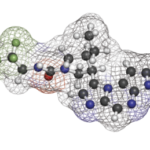“The drug has a new boxed warning for cardiovascular death after the FDA required a post-marketing safety trial because of concerns related to cardiovascular events and death in the original febuxostat development program,” said Dr. Habal.
“The CARES study of 6,190 gout patients showed that all-cause mortality and cardiovascular mortality were higher with febuxostat than with allopurinol, which raised concerns about the drug staying on the market,” she said. “However, there are limited therapies available for gout. Febuxostat is one of only two marketed xanthine oxidase inhibitors, which are considered first-line therapies for the treatment of gout. Given the limited number of therapies, gout is a disease with highly unmet need for treatment options.”2
In January 2019, an FDA Advisory Committee met to review the trial data. Members voted (19 yes, 2 no, 1 abstention) that there is a patient population in which the benefit-risk profile for febuxostat is favorable for the treatment of hyperuricemia in gout patients. They recommended febuxostat be reserved for patients who cannot tolerate, or have failed, an adequate trial of allopurinol (i.e., use as a second-line therapy).
“The agency determined that there is a patient population for whom the benefit of febuxostat outweighs the risks and concluded that febuxostat should not be removed from the market,” she said.
“In 2019, the FDA also added boxed warnings for three JAK inhibitors, upadacitinib, tofacitinib (Xeljanz, Xeljanz XR) and baricitinib (Olumiant), due to their risk of thromboembolic events,” said Dr. Habal. These warnings were based on interim data from an ongoing safety trial of tofacitinib.3
“When FDA first approved tofacitinib, a clinical trial was required among patients with RA to evaluate the risk of heart-related events, cancer and opportunistic infections with the medicine at two doses: 10 mg twice daily and 5 mg twice daily in combination with methotrexate in comparison with a tumor necrosis factor inhibitor,” said Dr. Habal. A data safety monitoring committee found patients receiving the 10 mg twice daily dose had increased occurrences of blood clots and death compared with those receiving the 5 mg twice daily dose or TNF inhibitors.
“This resulted in the discontinuation of the 10 mg twice daily dose arm in that trial and transitioning the patients who were on the high twice daily dose to the lower, currently approved dose of 5 mg twice daily,” she said
The FDA added boxed warnings about thrombosis risk to the prescribing information for baricitinib, stating patients with thrombosis symptoms should be evaluated promptly, and to upadacitinib, warning that thrombosis has occurred in patients taking JAK inhibitors used to treat inflammatory conditions.



